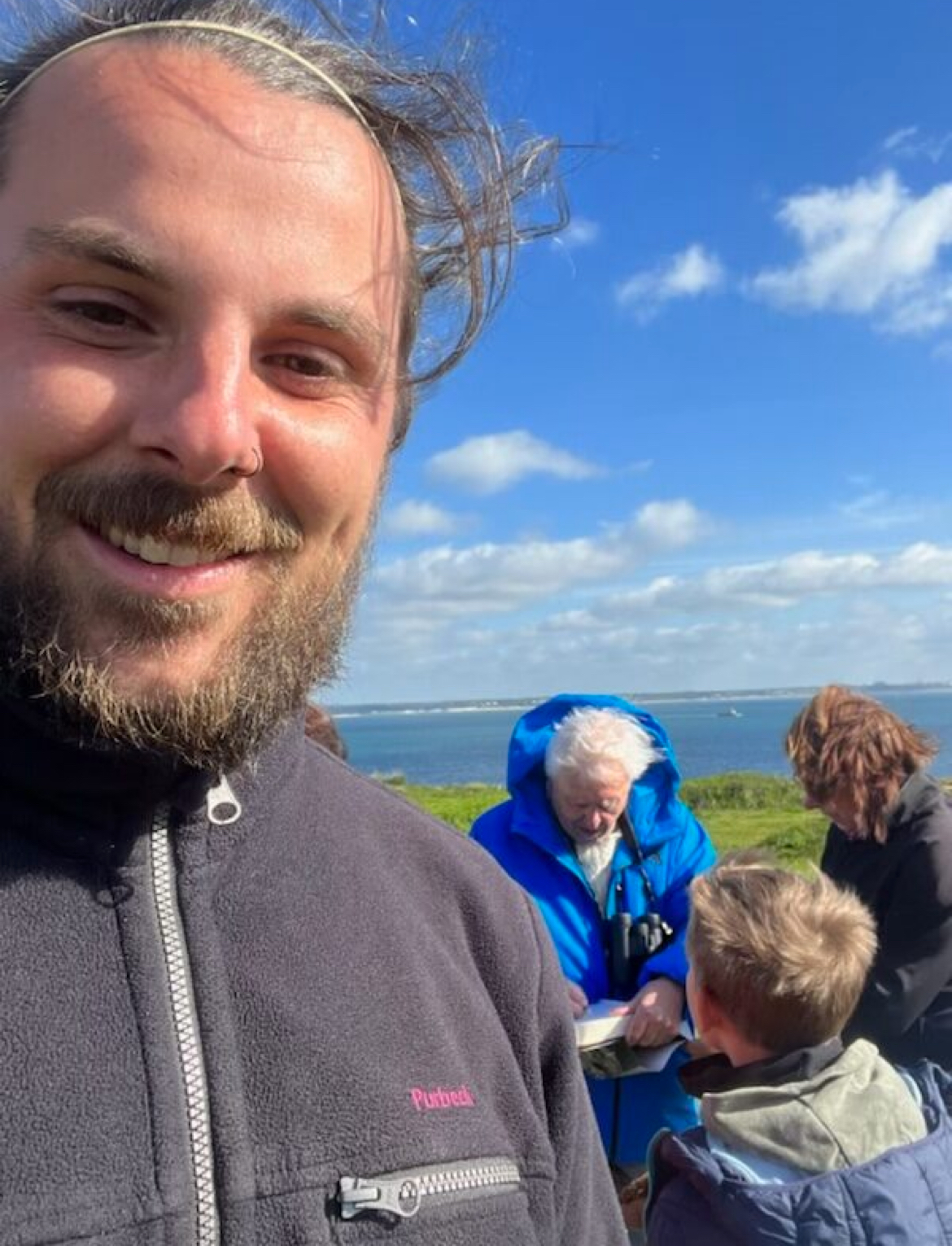I set off for work at 2:50 am to complete what, to anyone who knows me, has been a dream of mine since I can remember.
I arrived at work and went to pick up David Attenborough and his film crew.
Sir David Attenborough walked down the driveway and invited myself and my colleague in for a coffee and a banana. We sat around the breakfast table for half an hour with his daughter and some of his crew before we went to Old Harry’s Rocks for the sunrise to film a clip for his new series.
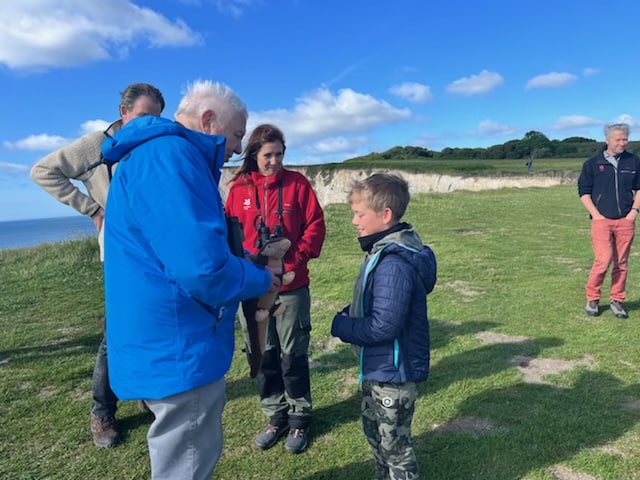
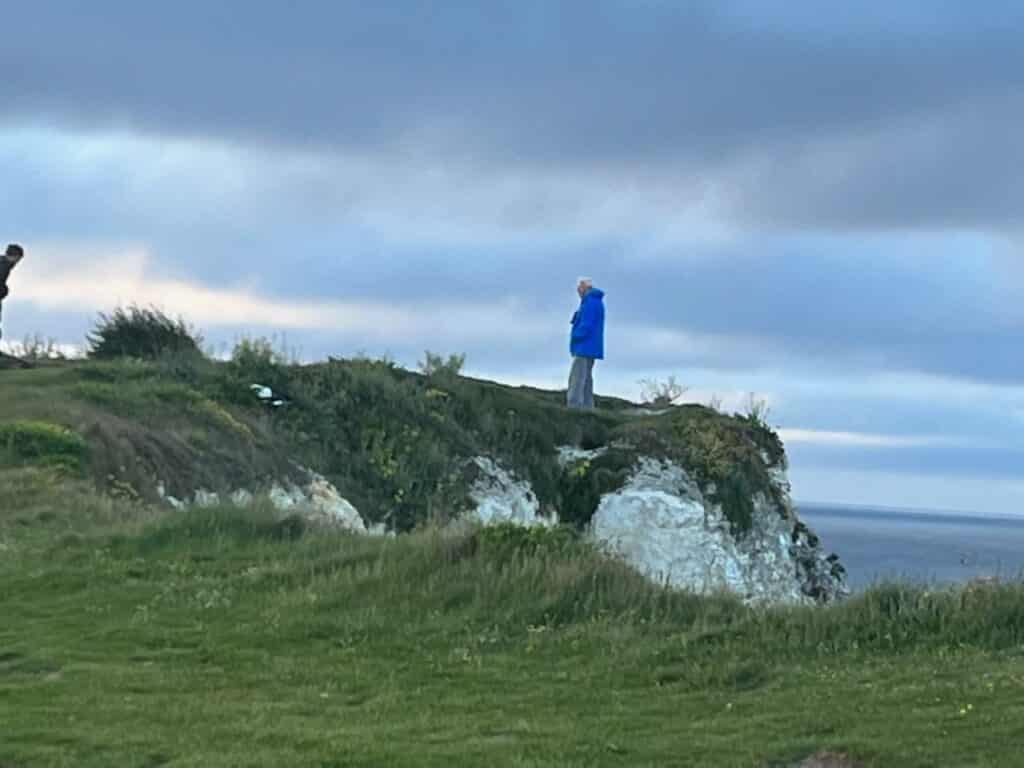
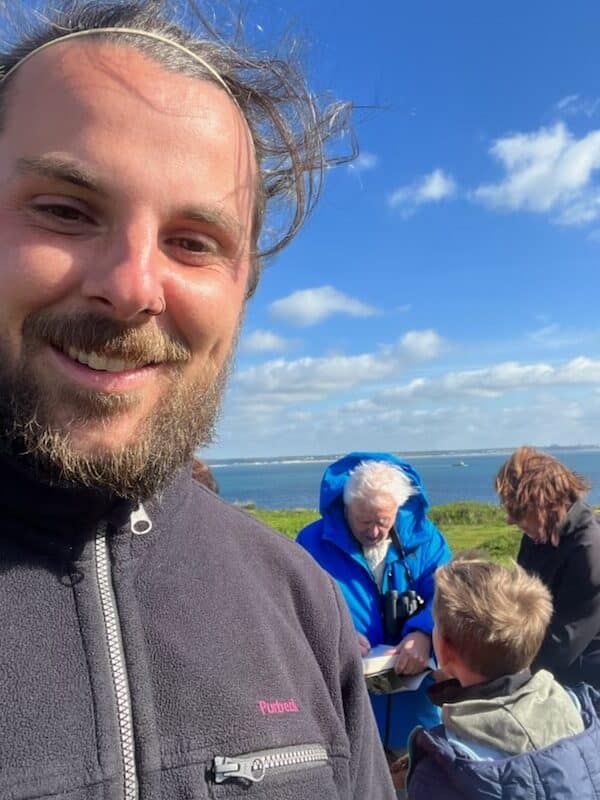
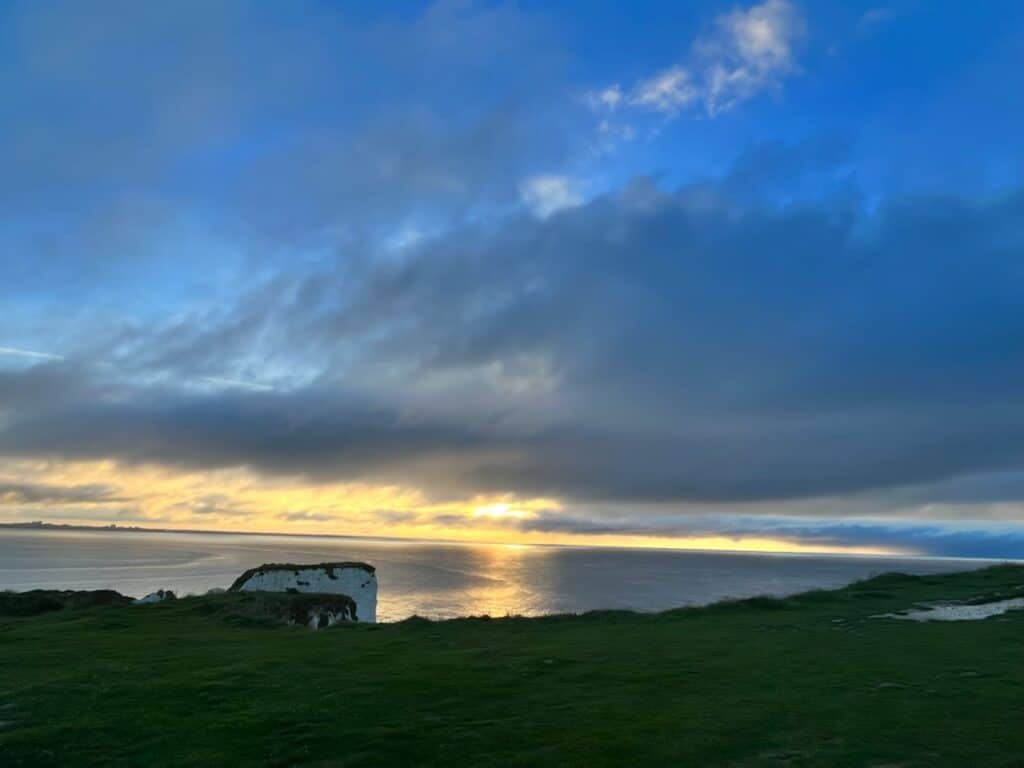
This man is a hero to me. A conservation legend and a true inspiration, along with Steve Irwin, is the reason why I work in the sector I do.
I will remember today for the rest of my life.
And when I met Gordon Buchanan, the renowned wildlife photographer:
Your heroes truly are worth meeting.
Sam Cridland
The Imperative of Conservation: Preserving Nature for Future Generations
Conservation is an essential concept that underscores the significance of protecting and preserving the Earth’s natural resources. In an era marked by rapid industrialisation, urbanisation, and technological advancements, the need for conservation has become more urgent than ever. The delicate balance of ecosystems, biodiversity, and the overall well-being of our planet are at stake.
Biodiversity is the cornerstone of a healthy and thriving planet. Conservation efforts aim to protect the rich tapestry of life on Earth, encompassing diverse species of plants, animals, and microorganisms. Each organism plays a unique role in maintaining ecological balance and contributes to the overall resilience of ecosystems. The loss of any species can disrupt these intricate relationships, leading to cascading effects that impact entire ecosystems. Conservation helps prevent the extinction of species, ensuring the continuity of life and the preservation of genetic diversity.
Ecosystems provide a myriad of services that sustain life on Earth. From purifying air and water to regulating the climate and pollinating crops, these services are vital for human survival. Conservation safeguards the integrity of ecosystems by preventing their degradation and ensuring the continued provision of these essential services. Forests, wetlands, and oceans, for instance, act as carbon sinks, mitigating the effects of climate change. By preserving these natural habitats, conservation efforts directly contribute to the well-being of human societies.
Conservation is integral to the sustainable management of natural resources such as water, soil, and minerals. Overexploitation and mismanagement of these resources can lead to environmental degradation, the loss of arable land, and water scarcity. Responsible conservation practices seek to balance human needs with the preservation of natural resources, ensuring their availability for future generations. Sustainable agriculture, efficient water use, and responsible forestry are examples of conservation strategies that promote long-term resource availability.
Nature holds immense cultural and aesthetic value for societies around the world. Conservation efforts contribute to the preservation of iconic landscapes, biodiversity hotspots, and culturally significant sites. These natural treasures serve as sources of inspiration, recreation, and spiritual connection. By protecting these areas, conservation helps maintain the cultural richness of communities and ensures that future generations can continue to appreciate the beauty and diversity of the natural world.
Conservation is rooted in the ethical responsibility to be stewards of the Earth. As sentient beings with the ability to comprehend the consequences of our actions, humans bear a moral duty to protect the environment. This responsibility extends beyond current generations, as the choices we make today shape the world that our descendants will inherit. By embracing conservation practices, we acknowledge our interdependence with nature and commit to preserving the planet for the well-being of all living beings.
In conclusion, the importance of conservation cannot be overstated. It is a holistic approach that addresses the interconnectedness of all living organisms and their environments. By safeguarding biodiversity, maintaining ecosystem services, managing natural resources sustainably, preserving cultural and aesthetic values, and acknowledging our ethical responsibility, conservation becomes a cornerstone for a sustainable and harmonious future. It is imperative that individuals, communities, and nations collaborate in adopting and promoting conservation practices to ensure the health and resilience of our planet for generations to come.
If you like our content, join us in helping to bring reality and decency back by SUBSCRIBING to our Youtube channel: https://www.youtube.com/channel/UCQ1Ll1ylCg8U19AhNl-NoTg AND SUPPORTING US where you can: Award Winning Independent Citizen Media Needs Your Help. PLEASE SUPPORT US FOR JUST £2 A MONTH https://dorseteye.com/donate/

